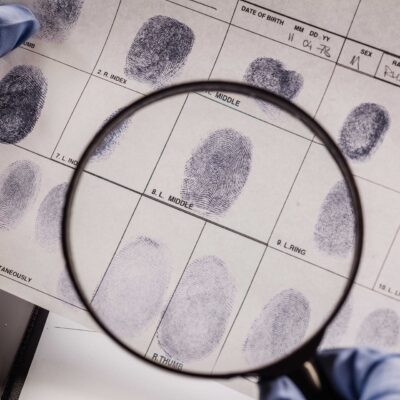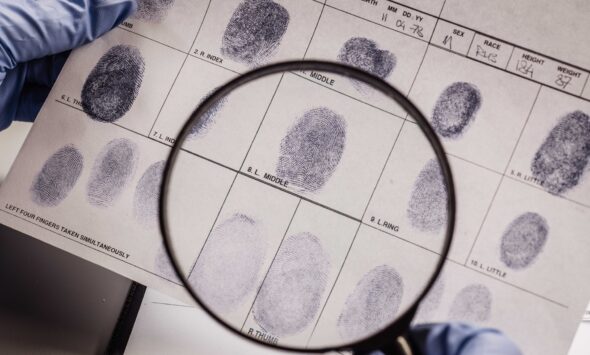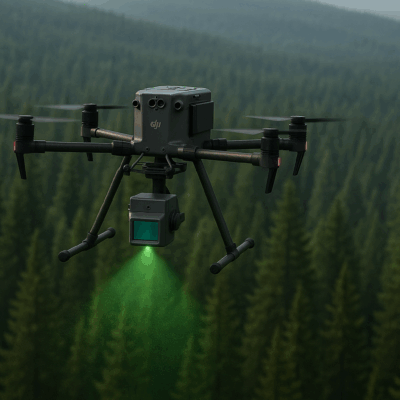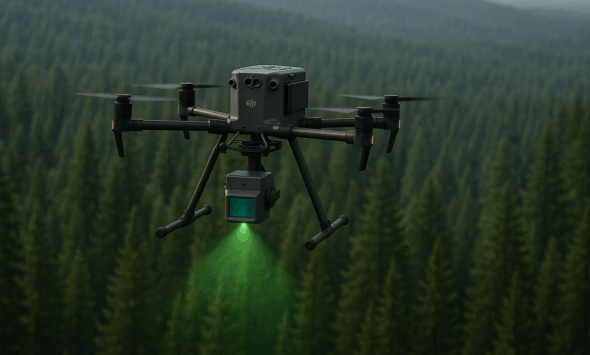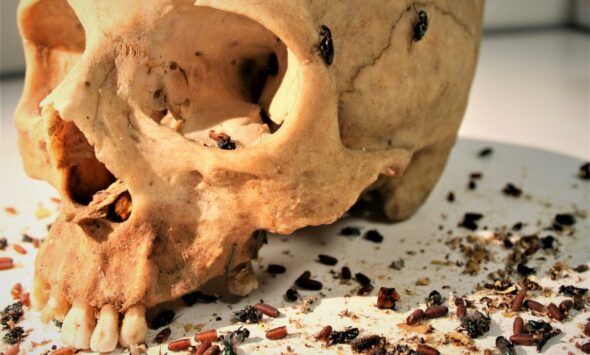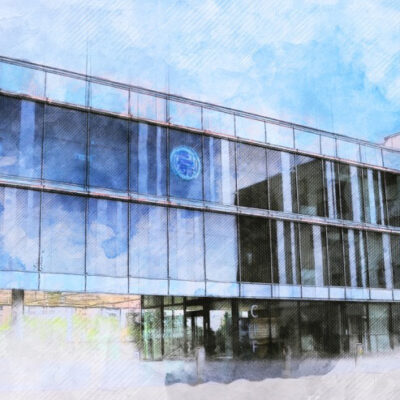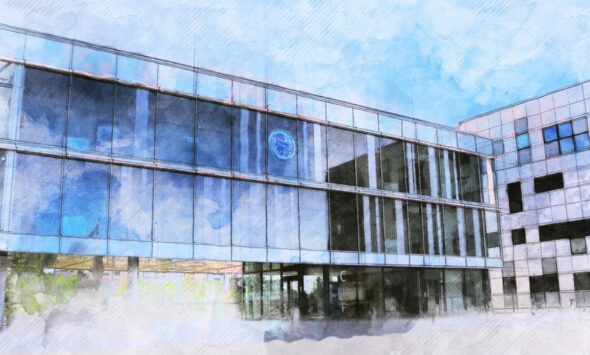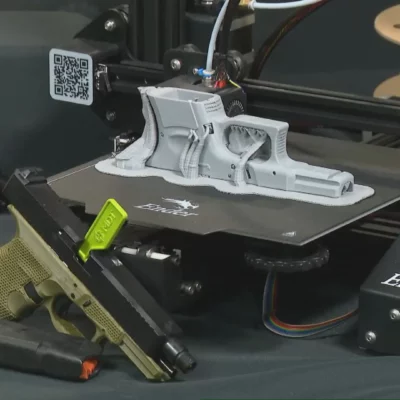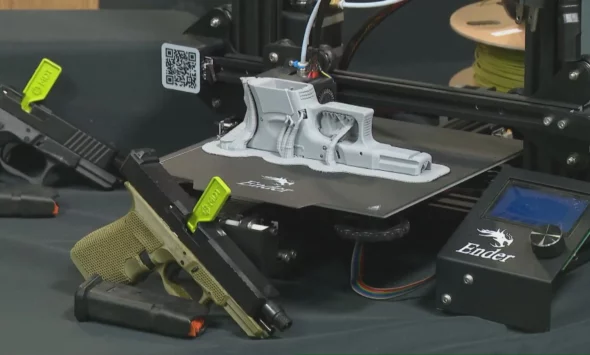TRACIP, a specialist in digital forensics, has developed several mobile laboratories to enable law enforcement to conduct investigations as close to the field as possible. Among these laboratories, the mobil’IT is an exclusive model that allows digital forensic investigators to perform forensic analyses and data recovery in an autonomous, mobile, and collaborative mode.
The Challenge of Mobility in Investigations
Investigators face multiple challenges in the course of their work, particularly the need to accelerate investigations. Shortening delays and minimizing handling steps to preserve digital evidence—given its inherent « fragility »—is a growing concern. Solutions that make it possible to deploy evidence processing and analysis tools directly at the intervention scene provide a strong response to these challenges. Since 2014, Tracip (a Deveryware entity belonging to Flandrin Technologies, the cyber division of the ChapsVision group), the first French private laboratory specializing in digital forensic expertise, has developed the mobil’IT dedicated to digital investigations. Designed to support investigators during their interventions, this laboratory takes the form of a vehicle containing all the equipment necessary to conduct on-site digital investigations.
Offering the Same Qualities as a Fixed Laboratory
The mobil’IT, a highly equipped vehicle, has been designed to maximize the use of its equipment and streamline workflows in a mobile context. It offers the same functionalities as a fixed, “traditional” laboratory while being fully autonomous. The information system plays a central role here: it acts as the nerve center, enabling investigative teams to carry out their missions without constraints while staying connected to the outside world through both traditional communication channels (4G, satellite, etc.) and dedicated ones (encrypted private networks). The internal network distribution works just like in any other laboratory, whether copper- or fiber-based. In addition, it has its own built-in resources for full autonomy, including multiple servers. Its configuration also makes it possible to access the contents of flash memories and defective or damaged hard drives.
With autonomous power supply, dedicated equipment (IT racks, workstations, cleanroom), communication systems, and more, the configuration provides flexibility and efficiency to support case resolution.
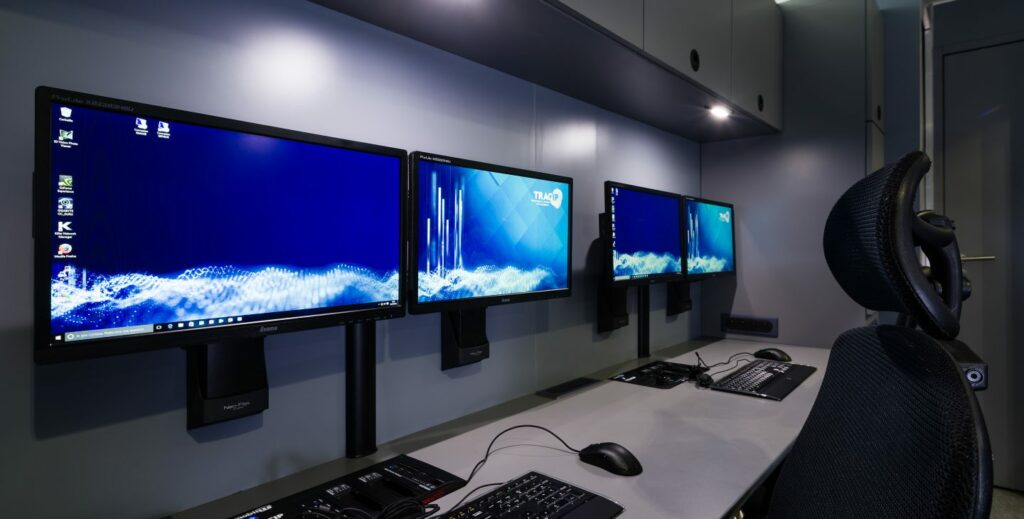
The specificity of digital evidence
Today, investigators face increasing difficulty in quickly and effectively synthesizing large volumes of information. Analytical tools and methods continue to evolve in order to process and exploit ever-growing amounts of data and to highlight the most relevant elements as rapidly as possible. In an increasingly digital world, accessing evidence requires the implementation of rigorous collection techniques that can withstand legal scrutiny.
Digital forensics allows investigators to transform traces into admissible digital evidence, ensuring its use in judicial proceedings. With the rise of cloud computing, the growing diversity and volume of data, and crimes that have become highly technical in nature (network breaches, cybersecurity, etc.), digital forensics is forced to adapt. Reliability of results is essential, as well as processing speed—especially when deadlines are short. For example, when a suspect is in custody, investigators have very limited time. In the case of a disappearance, every minute counts.
The central challenge of digital forensics is therefore to ensure the preservation of evidence and to prevent the alteration or falsification of identifying data (author, timestamp, device), in order to demonstrate the origin and integrity of digital documents. Otherwise, such evidence will not be admissible in court.
The collection, analysis, and reporting of digital evidence during a « field » operation requires heightened vigilance in handling the data. In a mobile context, digital evidence is even more fragile, volatile, and difficult to locate. The mobil’IT was specifically designed to address this challenge.
Mobile forensic laboratories: TRACIP’s expertise
TRACIP has developed unique expertise in mobile digital forensics, offering both deployable laboratories and portable on-site investigation kits (notably the Field k’IT backpack, a backpack including a hexib’IT laptop, an external blocker, and a duplicator).
In terms of mobile laboratories, TRACIP worked jointly with the IRCGN (French Gendarmerie Criminal Research Institute) to develop the mobil’DNA, a mobile laboratory dedicated to rapid DNA analysis for human identification. This deployable system is unmatched worldwide, enabling rapid genetic testing of large numbers of biological samples for the identification of multiple victims, whether in cases of terrorism, accidents, or natural disasters. In July 2022, the Crisis and Support Centre of the French Ministry for Europe and Foreign Affairs delivered a mobil’DNA / Lab’ADN unit to the Office of the Prosecutor General of Ukraine. This initiative formed part of France’s support to Ukrainian authorities in identifying victims of Russia’s aggression.
Rapid DNA analysis
Unlike conventional DNA analysis processes, the mobil’DNA can deliver genetic profiles for the first 21 samples within just two hours—including startup and calibration phases. After that, 21 new analysis results are generated every 30 minutes. This performance is based on a patented innovation by the IRCGN: the GendSAG (Gendarmerie Sample And Go), a new-generation swab containing a biological reactor that eliminates the extraction step. Its microfibers are designed to capture biological traces with great precision, minimizing their degradation and making DNA immediately available for PCR amplification and genotyping through capillary electrophoresis sequencing.
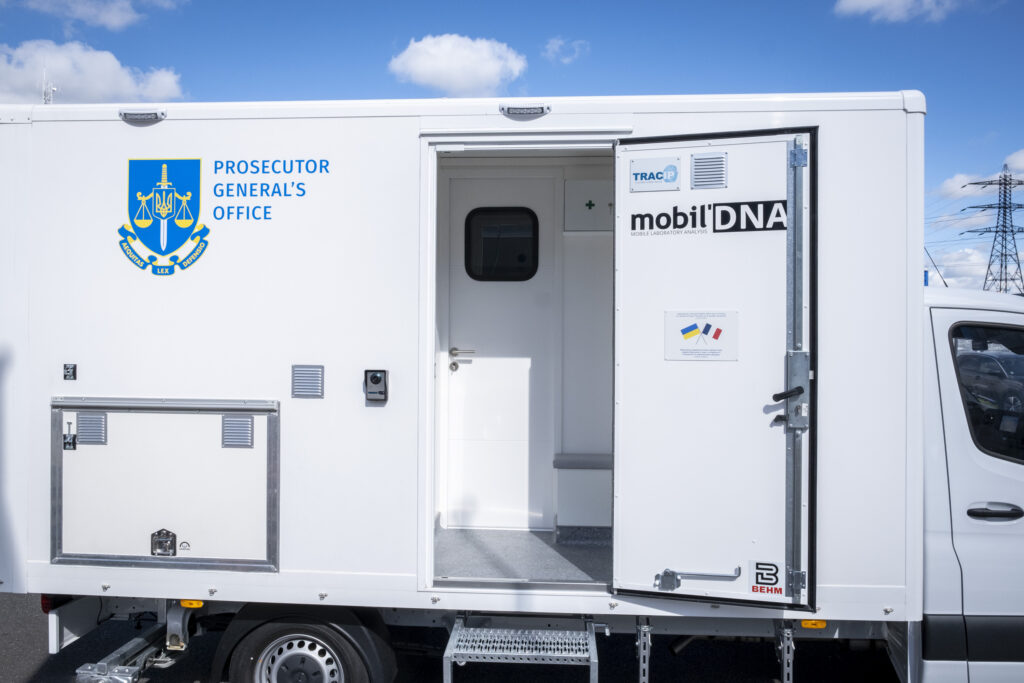
Fully energy-autonomous, the mobil’DNA is capable of genetically analyzing up to 200 biological samples per day. It carries an entire workflow on board, from sampling to results. In addition, the analysis equipment can be deployed by air transport if needed. This device has been field-tested on multiple occasions, notably during Storm Alex (Alpes-Maritimes – 2020), the Nice attack (2016), and the Germanwings plane crash (Southern Alps – 2015).
Tous droits réservés - © 2026 Forenseek

